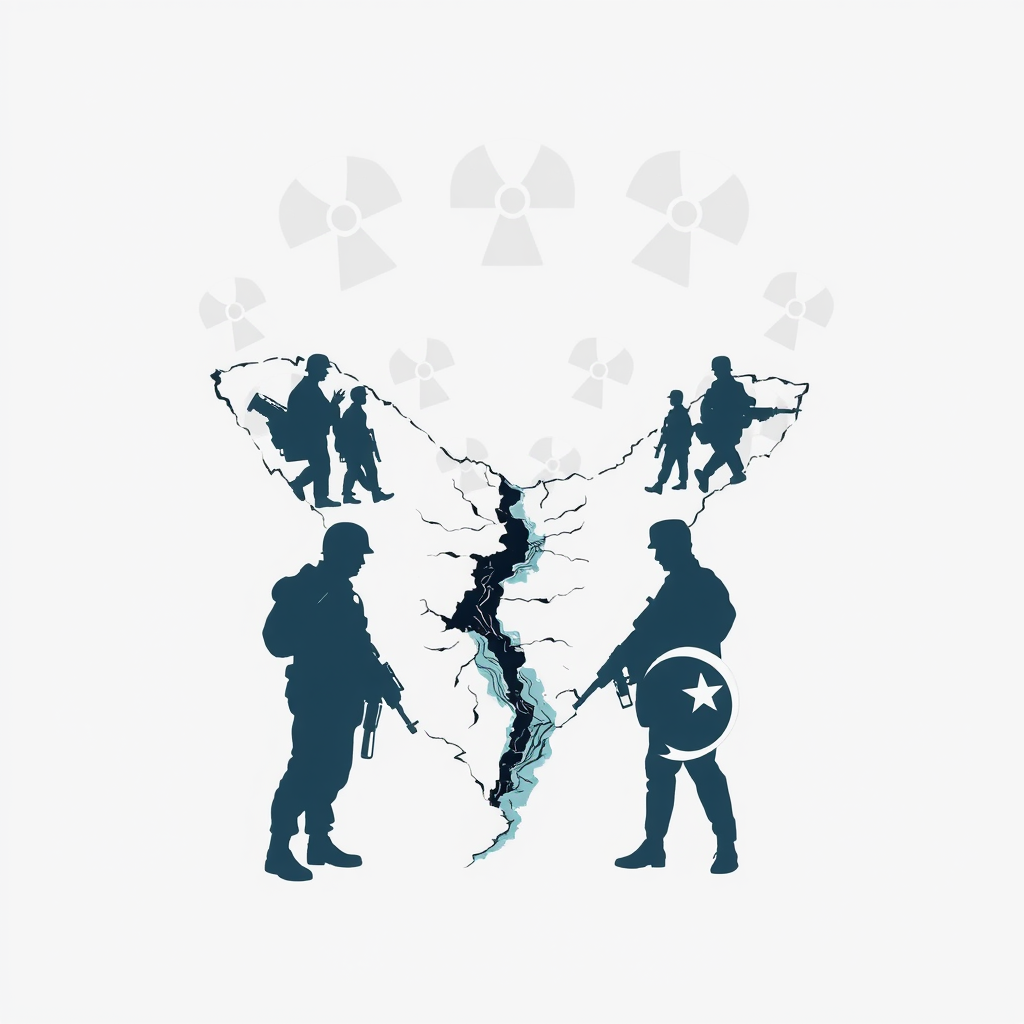Kashmir Tensions: India and Pakistan Edge Closer to War

New Delhi and Islamabad are once again locked in a dangerous escalation of tensions over the disputed region of Kashmir, following a deadly attack on Indian tourists. The recent surge in hostilities, marked by diplomatic downgrades, trade suspensions, and accusations of cross-border terrorism, raises serious concerns about regional stability and the potential for a wider conflict, particularly given both nations possess nuclear weapons.
The immediate trigger was an attack on Tuesday that killed 26 people, primarily Indian tourists, near Pahalgam in Kashmir. While a previously unknown militant group, Kashmir Resistance, claimed responsibility, India swiftly blamed Pakistan for supporting the attack, a charge Islamabad vehemently denies. This familiar pattern of accusation and denial has long characterized the fraught relationship between the two countries.
In response to the attack, India took a series of punitive measures, including downgrading diplomatic ties, suspending a crucial water-sharing treaty (the Indus Waters Treaty), revoking visas for Pakistani nationals, and reducing the number of Pakistani diplomats in New Delhi. Pakistan retaliated in kind, canceling visas for Indian nationals, suspending trade, closing its airspace to Indian aircraft, and warning that any attempt to disrupt the water supply would be considered an act of war.
The suspension of the Indus Waters Treaty is particularly alarming. Brokered by the World Bank in 1960, the treaty has remarkably survived two wars (1965 and 1971) and a major skirmish in 1999, governing the sharing of the vital Indus River system. Pakistan views the treaty as a “vital national interest,” essential for its agriculture and hydropower, and its potential disruption could exacerbate existing water scarcity issues.
The current crisis is rooted in decades of conflict over Kashmir, a region claimed in its entirety by both India and Pakistan. Armed insurgents have long resisted Indian rule, with many Kashmiris supporting either unification with Pakistan or independence. India accuses Pakistan of fomenting this violence, a charge Islamabad denies.
Past attempts at peace have been repeatedly derailed by militant attacks and border flare-ups. Significant events like the 1999 Kargil conflict, the 2008 Mumbai attacks, and the 2019 Pulwama bombing – followed by Indian airstrikes inside Pakistan – demonstrate the fragility of any potential rapprochement.
The situation took another turn in 2019 when Prime Minister Modi’s government revoked Kashmir’s semi-autonomous status and imposed sweeping security measures, further escalating tensions and suppressing dissent.
The build-up of military and nuclear arsenals on both sides adds a dangerous dimension to the conflict. India conducted its first nuclear test in 1974, followed by further tests in 1998, prompting Pakistan to conduct its own nuclear tests shortly after. Both nations now possess hundreds of nuclear warheads and sophisticated delivery systems.
While a full-scale war remains unlikely, the risk of miscalculation or escalation is very real. The current crisis underscores the urgent need for dialogue and de-escalation. International mediation, while often resisted by both sides, may be necessary to prevent a catastrophic outcome. The world cannot afford to stand by as India and Pakistan inch closer to the brink. The cycle of accusation, retaliation, and escalating tensions must be broken before it’s too late.